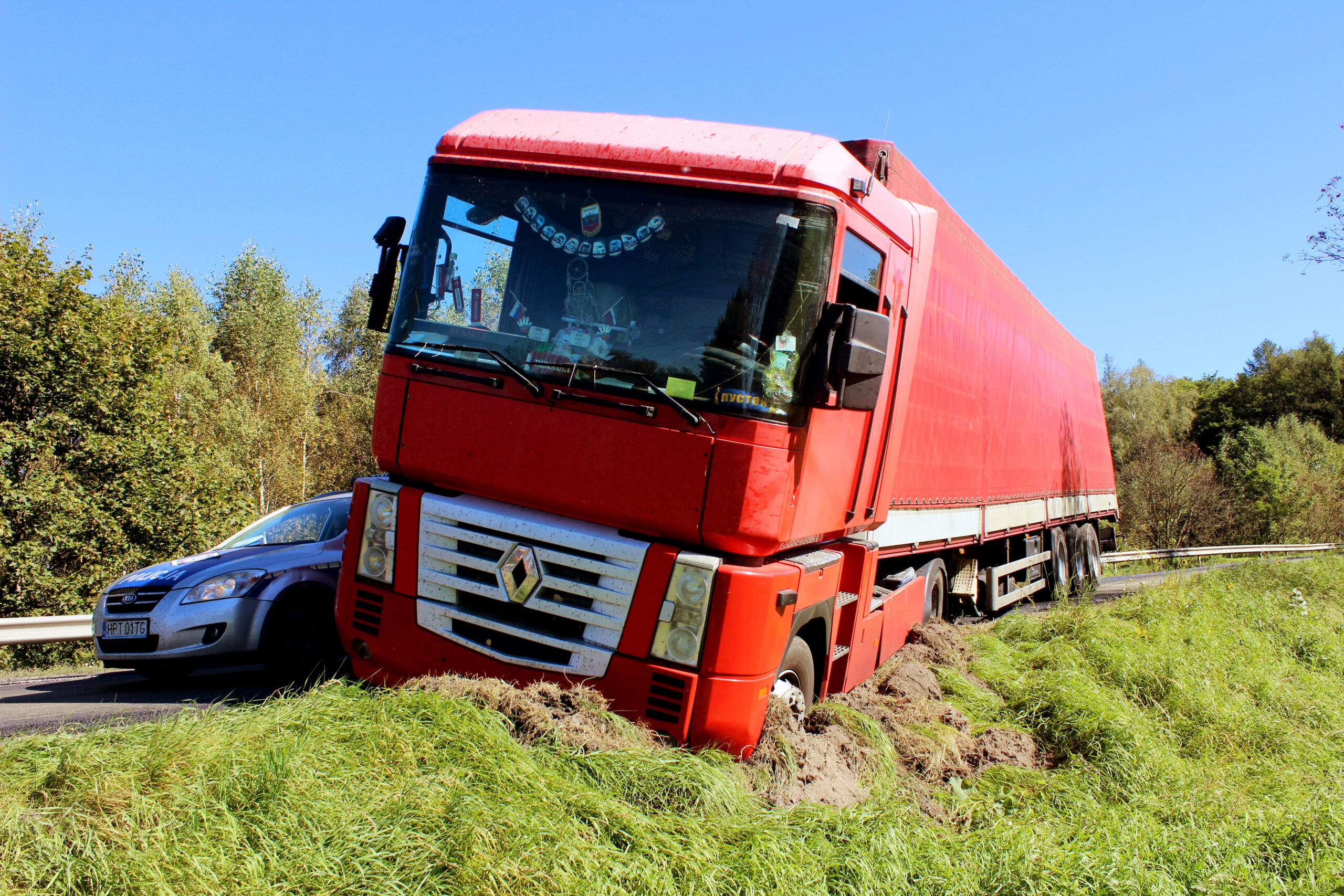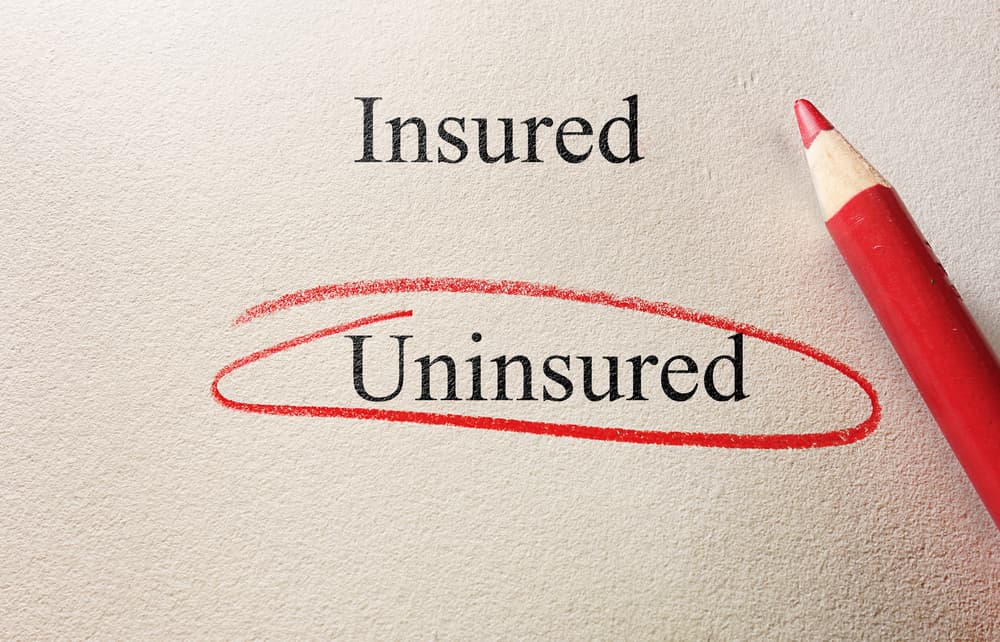
Unfortunately, transportation and logistics accidents involving shipping and trucking companies are common. These incidents can lead to severe consequences, including property damage, injuries, and even fatalities. When such accidents happen, determining liability becomes a key factor in ensuring justice and compensation for the affected parties.
Here, a Phoenix truck accident lawyer will discuss shipping company liability issues, shedding light on the scenarios where these companies may be held responsible for accidents and the subsequent legal implications that arise. They clarify the complexities of such cases, ensuring you understand the nuances of shipping regulations and how they apply to your situation.
Phoenix Truck Accident Guide
- Understanding Shipping Company Liability
- Factors Influencing Shipping Company Liability
- Types Of Accidents Involving Shipping Companies
- Legal Principles Governing Shipping Company Liability
- The Role Of Personal Injury Lawyers In Shipping Company Liability Cases
- Contact a Truck Accident Lawyer if You Think the Shipping Company is Liable for Your Accident
Understanding Shipping Company Liability
Shipping companies play a vital role in the global economy, transporting goods across vast distances and ensuring the smooth flow of commerce. However, with this responsibility comes the potential for accidents and the subsequent legal ramifications. Liability in the context of shipping companies refers to their legal obligation to compensate for damages or injuries resulting from their operations.
The concept of liability extends beyond mere financial responsibility. It encompasses a broader spectrum of legal and ethical obligations that shipping companies must fulfill. These obligations include maintaining safe operating practices, ensuring proper employee training, and adhering to industry regulations and standards.
When a shipping company's vehicle or personnel is involved in an accident, determining liability becomes a central issue. This process involves examining various factors, including the accident's circumstances, the involved parties' actions, and the applicable laws and regulations.
Factors Influencing Shipping Company Liability
Several factors can influence whether a shipping company is liable for an accident. These factors often form the basis of legal arguments in personal injury cases and can significantly impact the outcome of a claim or lawsuit.

One of the primary factors in determining shipping company liability is driver negligence. If a truck driver employed by the shipping company acts negligently, the company may be held responsible for the resulting damages. Negligence can manifest in various forms, such as:
- Distracted driving
- Ignoring mandatory rest periods, leading to driver fatigue
- Driving under the influence of alcohol or drugs
- Violating traffic laws
- Improper cargo loading
- Failing to adjust driving behavior to accommodate adverse weather conditions
- Violating any other FMCSA regulations
When drivers establish negligence, the shipping company may be held vicariously liable for the actions of its employees. This legal principle, known as "respondeat superior," holds employers responsible for the negligent acts of their employees committed within the scope of their employment.
Proper vehicle maintenance is another fundamental responsibility of shipping companies. Failure to maintain their fleet in good working condition can lead to accidents and subsequent liability. Some common maintenance-related issues that can result in accidents include brake failures, tire blowouts, steering system malfunctions, faulty lighting systems, and improperly secured cargo. If an accident occurs due to a mechanical failure that proper maintenance can address, the shipping company may be liable for negligence in its maintenance practices.
The transportation industry is heavily regulated to ensure safety on the roads. Shipping companies must comply with numerous federal and state regulations governing their operations. These regulations cover driver qualifications and training, vehicle maintenance and inspection, driver hours of service, drug and alcohol testing programs, and cargo loading and securement.
Failure to comply with these regulations can be grounds for establishing liability in the event of an accident. For instance, if a shipping company allows a driver to exceed the maximum allowed driving hours and an accident occurs due to driver fatigue, the company may be liable for violating hours-of-service regulations.
Shipping companies have a responsibility to hire qualified drivers and provide adequate training. This includes conducting thorough background checks on potential employees, verifying proper licensing and certifications, providing comprehensive initial training, and offering ongoing education and skill development programs. If an accident occurs due to a driver's lack of qualification or improper training, the shipping company may be liable for negligent hiring or training practices.
The policies and procedures established by a shipping company can also impact liability determinations. Companies should maintain clear, safety-oriented policies and consistently enforce them. These policies may cover safe driving practices, proper cargo handling and securement, vehicle inspection protocols, emergency response procedures, and communication protocols between drivers and dispatchers. Suppose an accident occurs due to a violation of company policies or a lack of appropriate procedures. In that case, the shipping company may be liable for failing to establish or enforce adequate safety measures.
Types Of Accidents Involving Shipping Companies
Shipping company liability can arise from various types of accidents. Understanding these scenarios helps identify potential liability issues and determine the appropriate legal approach. Some common types of accidents involving shipping companies include rear-end collisions, jackknife accidents, rollover accidents, underride accidents, and cargo spills.
Rear-end collisions are among the most frequent types of accidents involving large trucks. These accidents often occur due to following too closely, sudden stops, brake failures, or driver distraction or fatigue. In many cases, authorities presume the rear-ending vehicle to be at fault. However, there may be circumstances where the shipping company can argue negligence on the other driver's part.
Jackknife accidents happen when the trailer of a large truck pivots out at an angle from the cab, similar to a folding pocket knife. Improper braking techniques, slippery road conditions, equipment failures, or sudden swerving or turning can cause these accidents. Determining liability in jackknife accidents often involves examining the driver's actions, road conditions, and the vehicle's maintenance history.
Rollover accidents are particularly dangerous and can result in severe injuries and property damage. Factors contributing to rollovers include excessive speed, especially when negotiating curves, improper load distribution or securement, vehicle design flaws, and driver error or inexperience. Liability in rollover accidents may extend beyond the shipping company to include other parties, such as the vehicle manufacturer or the company responsible for loading the cargo.
Underride accidents occur when a smaller vehicle collides with a large truck and slides underneath the trailer. These accidents are often devastating and can result in severe injuries or fatalities. Factors contributing to underride accidents include poor visibility, lack of proper underride guards, sudden truck stops, and driver negligence. Liability in underride accidents may involve multiple parties, including the shipping company, the truck manufacturer, and potentially the smaller vehicle's driver.
Accidents resulting from improperly secured or shifting cargo can lead to significant damage and injuries. Liability in these cases often focuses on proper loading and securement procedures, adherence to weight limits and distribution guidelines, regular inspections during transit, and driver training in cargo management. Shipping companies may bear liability for accidents caused by cargo spills if negligence in loading or securing the cargo is proven.
Legal Principles Governing Shipping Company Liability
Several legal principles come into play when determining shipping company liability. Understanding these principles is crucial for personal injury lawyers and truck accident lawyers handling cases involving shipping companies. Some key legal concepts include negligence, vicarious liability, negligent hiring and retention, negligent entrustment, strict liability, and negligence.
Negligence is a fundamental principle in personal injury law and is significant in establishing shipping company liability. To prove negligence, it typically requires showing that the shipping company had a legal obligation to exercise reasonable care to prevent harm to others, the company failed to fulfill this duty through action or inaction, the breach of duty directly led to the accident and resulting injuries, and the plaintiff suffered actual harm or losses as a result of the accident. In shipping companies, negligence can manifest in various ways, such as poor maintenance practices, inadequate driver training, or failure to comply with safety regulations.
Vicarious liability, also called respondeat superior, is a legal doctrine that holds employers accountable for the negligent actions of their workers performed within the scope of their employment. This principle is particularly relevant in shipping companies' cases, as it allows injured parties to seek compensation from the company rather than just the individual driver.
Establishing vicarious liability requires demonstrating that an employer-employee relationship existed between the shipping company and the driver, the driver acted within the scope of their employment at the time of the accident, and the driver's negligent actions caused the accident and resulting injuries.
Shipping companies must exercise reasonable care in hiring and retaining employees. This includes conducting thorough background checks, verifying qualifications, and monitoring employee performance. If a company fails in this duty and an accident occurs, it may be liable under the negligent hiring or retention theory.
To establish negligent hiring or retention, the plaintiff must show that the shipping company knew or should have known about the employee's unfitness for the job, that the employee's unfitness was a proximate cause of the plaintiff's injuries, and that the hiring or retention of the employee created an unreasonable risk of harm to others.
Negligent entrustment occurs when a shipping company allows an employee to operate a vehicle despite knowing or having reason to know that the employee is unfit. This can include situations where the company allows an unlicensed or improperly licensed driver to operate a vehicle, a driver with a history of accidents or traffic violations is permitted to continue driving or fails to address known substance abuse issues among its drivers. To prove negligent entrustment, it must show that the shipping company knew or should have known of the driver's unfitness and that this contributed to the accident.
Shipping companies may sometimes face strict liability for accidents, regardless of fault. This often applies to situations involving the transportation of hazardous materials. Under strict liability, the company can be responsible for damages even if they exercised all reasonable care in handling the materials. Strict liability cases typically involve transporting dangerous substances or materials, violations of specific safety regulations related to hazardous cargo, and accidents resulting in environmental damage or public health risks.
The Role Of Personal Injury Lawyers In Shipping Company Liability Cases
Personal injury lawyers play a pivotal role in cases involving shipping company liability. These legal professionals are instrumental in helping injured parties seek fair compensation for their losses. They contribute to these cases in various ways, including case evaluation, evidence gathering, negotiation with insurance companies, legal strategy development, court representation, and expert witness coordination.

The process begins with a thorough case evaluation. Personal injury lawyers review police reports and accident scene documentation, analyze medical records and injury assessments, interview witnesses and gather statements, and consult with accident reconstruction specialists. Through this evaluation, truck accident attorneys can determine the strength of the case and identify potentially liable parties, including the shipping company.
Building a strong case against a shipping company requires substantial evidence. Personal injury lawyers are adept at collecting and preserving pivotal evidence, such as vehicle maintenance records, driver logs, employment history, company policies and procedures, black box data from the truck, and surveillance footage, if available. This evidence is vital in establishing negligence and liability on the shipping company's part.
Personal injury attorneys are skilled negotiators who can engage with insurance companies on behalf of their clients. They understand the tactics insurers use to minimize payouts and can counter these strategies effectively. Lawyers work to ensure that settlement offers adequately compensate their clients for medical expenses (both current and future), lost income and diminished earning capacity, pain and suffering, property damage, and other applicable damages.
Personal injury lawyers develop comprehensive legal strategies based on the case's circumstances. This may involve determining which legal theories to pursue, identifying all potential defendants, assessing the applicability of relevant laws and regulations, and preparing for possible defenses the shipping company raises.
Contact a Truck Accident Lawyer if You Think the Shipping Company is Liable for Your Accident
Legal counsel is essential if you've been in an accident involving a shipping or trucking company. A qualified personal injury attorney focuses on navigating the complexities of these cases, ensuring you understand your rights and options under relevant laws and regulations. They play a crucial role in gathering and analyzing key evidence such as accident reports, driver logs, and maintenance records to build a strong case for liability. Don't hesitate to schedule a consultation to discuss your case promptly and explore the best legal avenues to pursue compensation and accountability for your injuries and losses.



